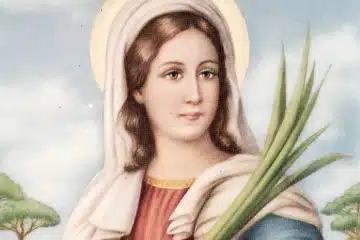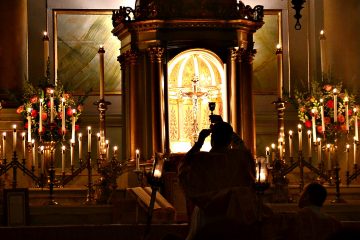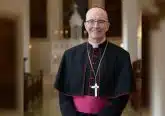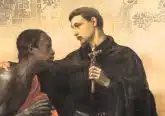Catholic leaders speak out on National Human Trafficking Awareness Day
Washington, D.C. Newsroom, Jan 11, 2021 / 01:49 pm MT (CNA).- Catholic leaders spoke out against human trafficking on Monday, National Human Trafficking Awareness Day.
“It is shocking to consider the size and scope of the tragedy of human trafficking that exists in our world in 2021,” stated Bishop Robert Deeley of Portland, Maine.
He called human trafficking “a horrific crime against the basic dignity and rights of the human person.”
Jan. 11, 2021 is National Human Trafficking Awareness Day, held during January which is National Slavery and Human Trafficking Prevention Month.
There are more than 40 million estimated victims of trafficking worldwide—25 million of them trapped in labor or sex trafficking, and 15 million people in forced marriages. Human trafficking has been calculated at a $150 billion industry.
Trafficking victims are everywhere—but hiding in plain sight, said a Catholic Relief Services (CRS) advisor on the group’s fact-sheet for January.
“They are hidden from view. You don’t recognize them in the back kitchens, shops, gas stations and in hospitality. They are also tucked away in fields,” said Dr. Lucy Steinitz, Catholic Relief Services senior technical advisor for protection.
These forms of “modern-day slavery” look quite different from those of centuries past, she added.
“They [victims] are not in shackles or on farms,” Steinitz said. “People are coerced into harsh employment under horrible conditions, and then have no freedom to leave.”
Other Catholic groups also recognized National Human Trafficking Awareness Day, including Catholic Charities USA and the Texas Catholic Conference, which has organized a week of prayer to end trafficking, held from Jan. 11-17.
The problem of trafficking, Bishop Deeley said, runs so deep that it requires action at all levels of government.
He called on Congress to pass comprehensive immigration reform to encourage legal immigration and reduce the risk of refugees and child migrants being trafficked.
“Survivors of human trafficking are commonly linked by poverty and a lack of opportunity, particularly immigrants and undocumented workers in the U.S.,” he said. “The selling of people, treated as instruments of gain, takes away all fundamental values rooted in the nature of a human being.”
As part of the efforts to fight trafficking, parishes can play a role in hosting discussions, he said, also praising diocesan programs such as housing assistance for women trafficking survivors.













